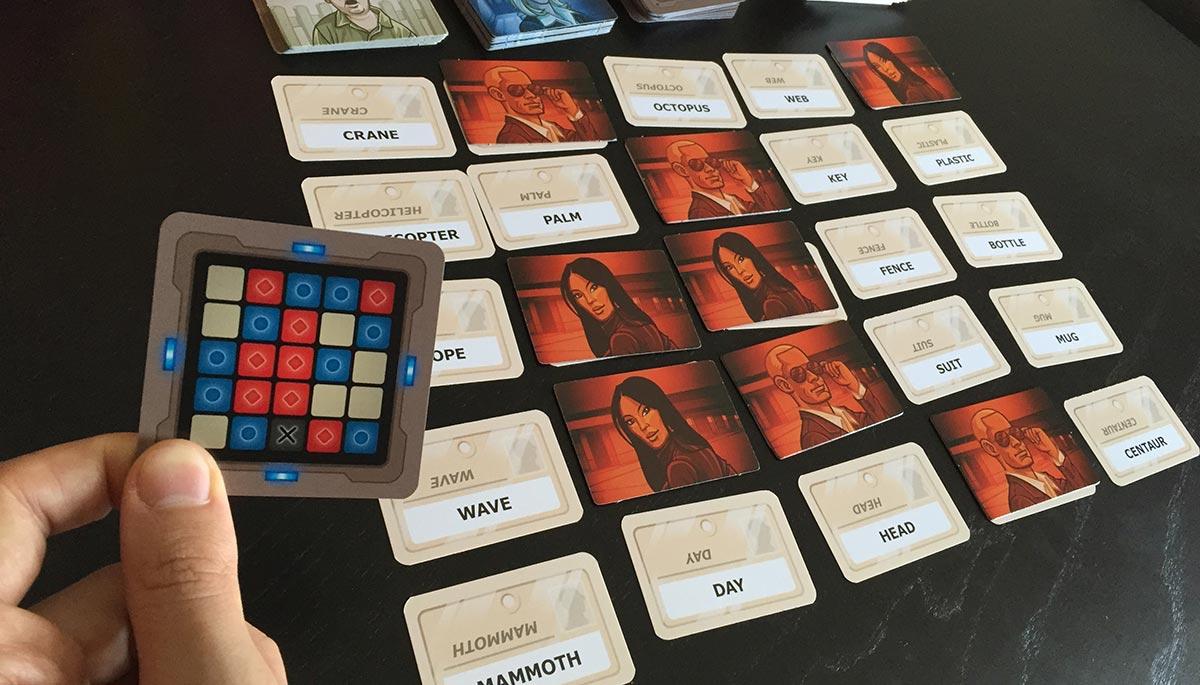One of my favorite games to play with my family is Codenames. In Codenames, players are split into two groups, with one member of each group being the designated codemaster. There is a grid of 16 cards laid out in a 4×4 square each with a different word on them, and there is a “code” card that identifies which cards in the grid’s orientation are cards for the red team, for the blue team, neutral, or black; there is only one black card, and if that word is guessed, the team who guessed it immediately loses. The designated codemaster is the only member of the team who is able to see the “code.” Each turn, the codemaster gives their team a word and the number of words they deem to be related to that word, attempting to connect as many of the words in the grid as possible within their team’s color with the word they use. The teams then take turns attempting to guess the words from the set. The mechanics include code words, the “code,” guessing, the set of laid out cards with words on them that are often not obviously related at all, and the number of words per turn restriction (players can only guess as many words as their codemaster designates them to per turn).
Within my family and friends, this brings about a dynamic wherein codemasters are challenged to, and attempt to, use specific inside jokes, personal references, or general knowledge about how a close friend or family member thinks to connect words in creative ways that the other players may not expect, creating an extremely personal and oftentimes hilarious playing experience. This is often a beneficial strategy as codemasters can find ways to connect far more words per turn than one would think at face value by taking advantage of their personal relationship to or understanding of someone. I find that Codenames is a surprisingly personal game as one can truly take advantage of how well one knows another’s way of thinking or view of the world to choose specific words that would lead that person to guessing incredibly specific words from the grid of 16. In this way, Codenames isn’t simply just a puzzle game or a race game in attempting to find all the words of your team’s color before the other team, but it’s also a game wherein players can strengthen their personal relationships by gaining a more in depth understanding of how their fellow players view the world.




